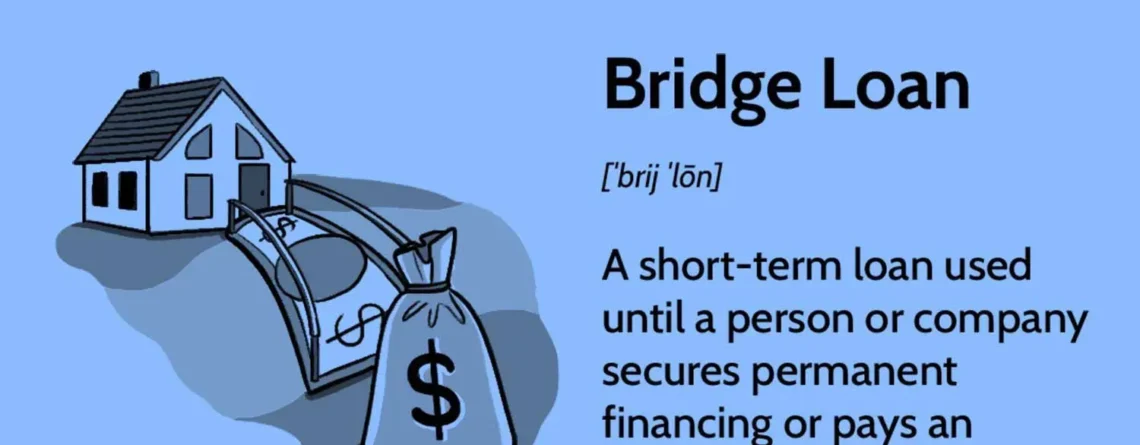Introduction
So what is a bridge loan? In an ever-changing financial landscape, individuals and businesses alike often find themselves in need of fast and flexible funding solutions. Bridge loans have emerged as a popular option for those seeking quick financing to bridge the gap between immediate financial needs and long-term solutions. In this guide, we will delve into the world of bridge loans, exploring their definition, purpose, benefits, considerations, and frequently asked questions (FAQs).
What are Bridge Loans?
A bridge loan is a short-term financing option that provides immediate cash flow to individuals or businesses. It serves as a bridge to cover financial gaps until a permanent financing solution is obtained or an existing obligation is settled. Bridge loans are typically used in real estate transactions, offering temporary funding to facilitate property purchases, renovations, or refinancing.
Purpose of Bridge Loans
The primary purpose of bridge loans is to provide immediate liquidity during transitional periods. These transitional periods may arise due to various reasons, such as:
1. Property Purchases: Buyers may need bridge loans to secure a new property before selling their current one. This allows them to avoid potential delays or seize time-sensitive opportunities.
2. Property Renovations: Investors or property owners may require funding for renovations or upgrades before securing long-term financing or selling the property.
3. Business Operations: Entrepreneurs and small businesses may use bridge loans to overcome temporary cash flow shortages, paying for essential expenses until revenue or funding is secured.
Benefits of Bridge Loans
Choosing bridge loans as a financing option offers several advantages, making them an appealing choice for those in need of quick funding:
1. Speed and Efficiency: Bridge loans offer a faster and simpler approval process compared to traditional financing options. They allow borrowers to seize opportunities promptly, avoiding lengthy procedures.
2. Flexibility: Bridge loans provide borrowers with greater flexibility, allowing them to customize terms and conditions to best suit their financial needs.
3. Bridge to Permanent Financing: These loans serve as a temporary solution until a long-term financing option, such as a mortgage, is secured. They allow borrowers to fulfill immediate financial obligations without waiting for traditional lenders to process their applications.
4. Real Estate Transactions: Bridge loans provide real estate investors with the necessary funds to purchase properties, giving them a competitive edge in a competitive market.
Considerations Before Obtaining a Bridge Loan
While bridge loans offer an array of benefits, borrowers should consider the following factors before obtaining one:
1. Higher Interest Rates: Bridge loans typically carry higher interest rates than traditional loans due to the short-term nature and limited underwriting process involved. Borrowers should carefully evaluate their ability to repay the loan and assess the overall cost of financing.
2. Term Length: Bridge loans generally have shorter terms, often ranging from a few months to a year. Borrowers should ensure that they have a clear strategy to repay the loan within the specified time frame to avoid any financial difficulties.
3. Exit Strategy: Before obtaining a bridge loan, borrowers should have a well-defined exit strategy in place. This includes identifying a permanent financing solution, selling the property, or executing another financial plan to repay the loan.
Frequently Asked Questions (FAQs)
Q1. Are bridge loans only used for real estate transactions?
A1. Although bridge loans are commonly used in real estate transactions, they can also be utilized by businesses experiencing temporary cash flow shortages.
Q2. How quickly can I obtain a bridge loan?
A2. Bridge loans are known for their speed and efficiency. Depending on the lender and borrower’s financial situation, the process can take anywhere from a few days to a few weeks.
Q3. Are bridge loans available for both residential and commercial properties?
A3. Yes, bridge loans can be used for both residential and commercial properties. They are not limited to a specific type of property.
Q4. Can I obtain a bridge loan if I have bad credit?
A4. While bridge loans focus more on the value of the collateral rather than credit history, having good credit can help in obtaining more favorable terms. However, some lenders might still consider borrowers with bad credit but may charge higher interest rates.
Q5. What happens if I cannot repay the bridge loan within the specified term?
A5. If a borrower fails to repay the bridge loan within the specified term, they may face penalties or additional fees. It is essential to have a clear exit strategy and financial plan to avoid such situations.
Conclusion
Bridge loans have become a popular financing solution for individuals and businesses seeking quick cash flow. With their flexibility, speed, and ability to bridge the gap between immediate financial needs and long-term solutions, bridge loans provide a valuable tool in navigating transitional periods. However, borrowers must carefully evaluate the terms, costs, and their ability to repay the loan within the specified timeframe. As with any financial decision, conducting thorough research, consulting with professionals, and assessing individual circumstances is vital before pursuing bridge loans.












Leave a Reply